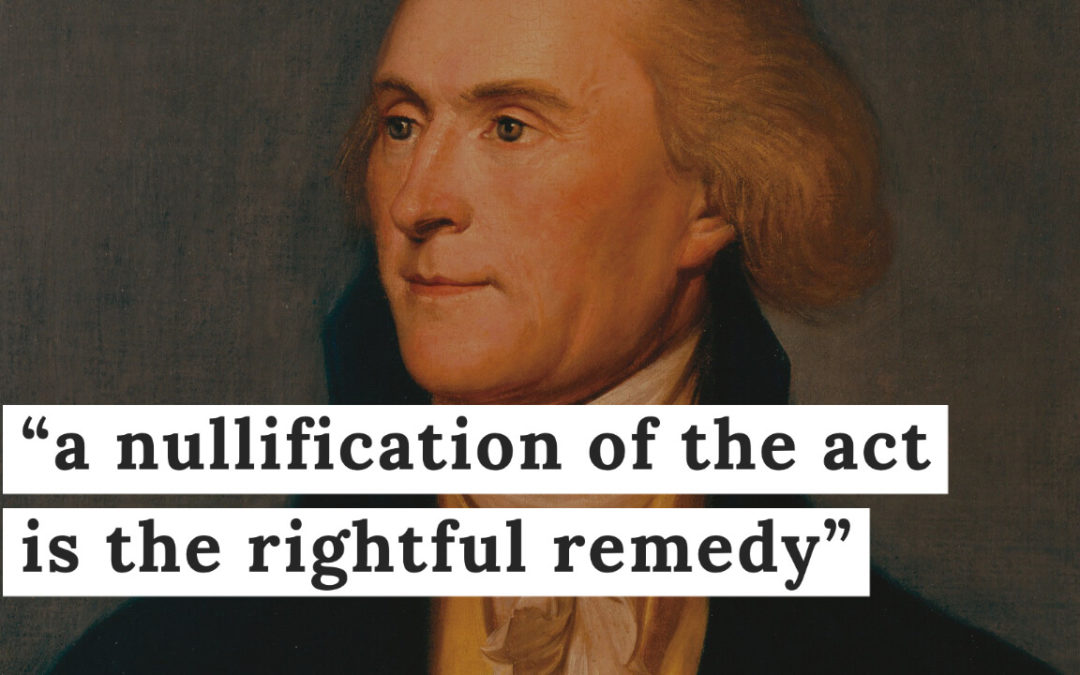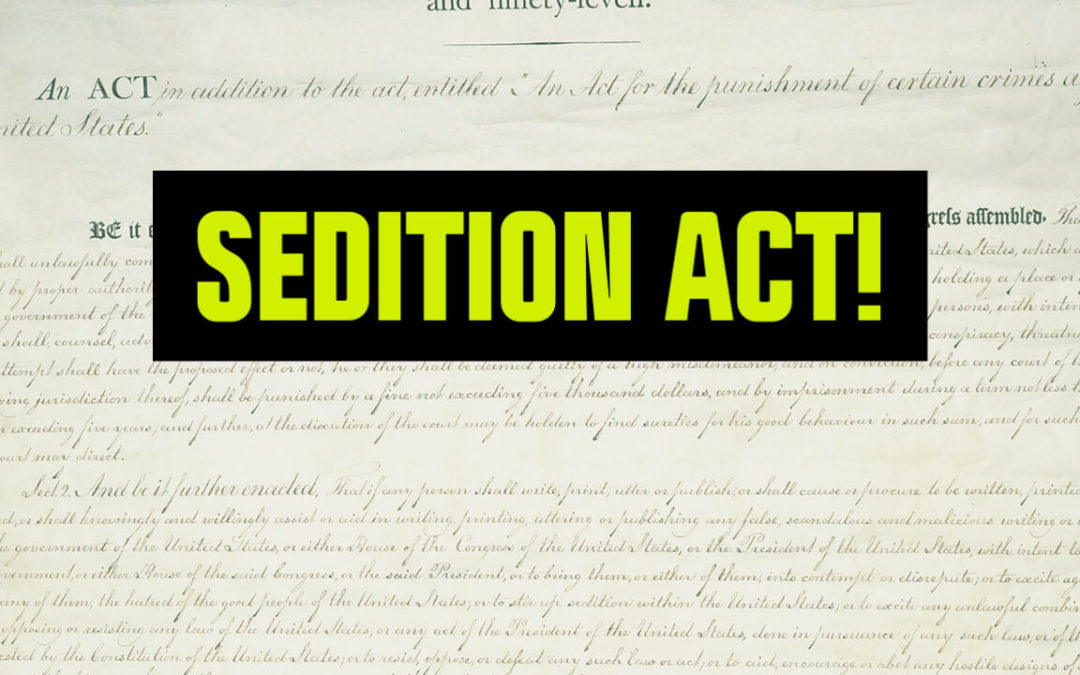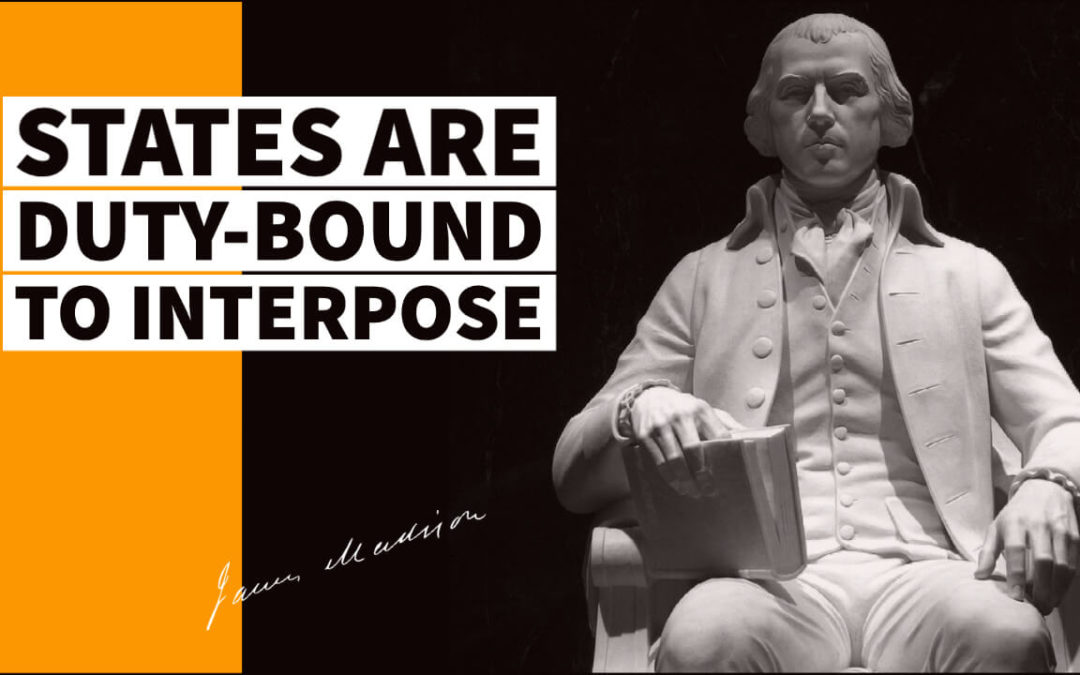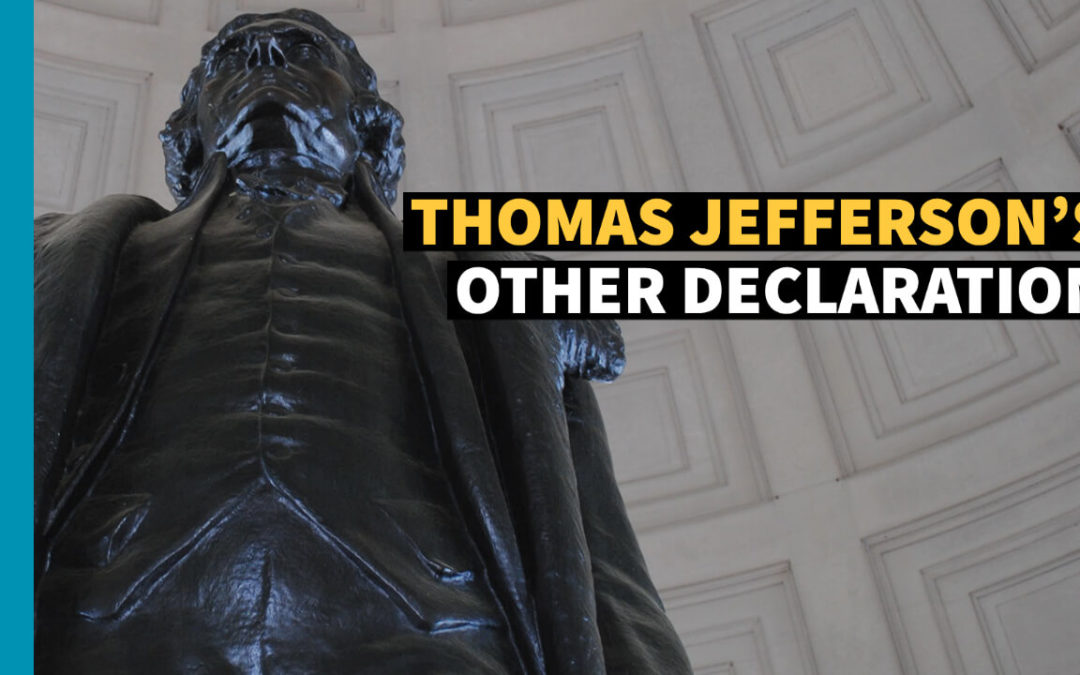
Alien and Sedition Acts


Thomas Jefferson’s Kentucky Resolutions of 1798: An Introduction
In response to the hated Alien and Sedition Acts, Thomas Jefferson drafted resolutions passed by the Kentucky legislature that included three foundational principles of the American Revolution. Path to Liberty, Fast Friday Edition: Nov 11, 2022...
Free Speech Under Attack: The Sedition Act of 1798
On July 14, 1798 – John Adams signed the Sedition Act into law. This is one of the most egregious violations of the Constitution in history – criminalizing free speech and the press just years after the 1st Amendment was ratified. Path to Liberty: July 14,...
James Madison: How to Defeat Federal Programs
In response to the hated Alien and Sedition Acts of 1798, on Dec 21 and Christmas Eve, Virginia passed a series of resolutions penned by James Madison. Learn strategy to support the Constitution and liberty from the “Father of the Constitution” himself. Path to...
Thomas Jefferson’s Other Declaration: The Kentucky Resolutions of 1798
Most people know that Jefferson was the primary drafter of the Declaration of Independence, but few have even heard of another declaration that could very well be the 2nd most important one he ever wrote: The Kentucky Resolutions of 1798. Path to Liberty, Fast Friday...
